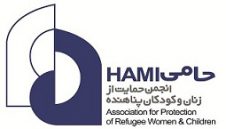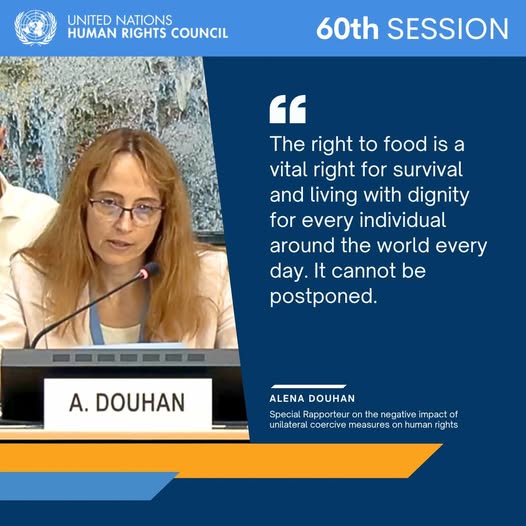The Association for the Protection of Refugee Women and Children (HAMI) successfully delivered its oral statement as the first non-governmental organization to speak during the interactive dialogue with Professor Alena Douhan, the Special Rapporteur on the negative impact of unilateral coercive measures on the enjoyment of human rights.
The statement focused on the impact of sanctions on Iran, as one of the largest refugee-hosting countries, and on Afghanistan, as a major country of origin for refugees and migrants.
The text of the statement was as follows:
Madam Special Rapporteur,
As you are well aware, economic sanctions have broad and multifaceted consequences for the realization of human rights and the advancement of sustainable development in any society. These restrictions disrupt countries’ access to financial and technical resources, severely limiting their ability to invest in essential infrastructure, education, healthcare, and the creation of sustainable employment opportunities, as well as to provide social services to vulnerable groups.
In this context, Iran represents a clear example of compounded challenges. While sanctions have created a fragile economic environment and significantly eroded national resilience—placing substantial social and economic pressures on Iranian citizens—the country continues to host over six million Afghan nationals, who have fled deep and chronic insecurity, social and political instability, and economic hardship in Afghanistan. Hosting such a large population, despite the country’s own urgent needs, has placed immense strain on Iran’s fragile and unstable economy, particularly in the education and healthcare sectors, which spend billions of dollars annually on services for Afghan refugees.
Limited domestic financial and natural resources, coupled with restricted access to international funding, have reduced social resilience and increased pressure on the government to limit the stay of Afghans in Iran. Meanwhile, the return of Afghans to Afghanistan—a country itself under sanctions and lacking the necessary capacity to meet even basic needs—faces serious challenges. These include severe restrictions imposed by the ruling authorities on women’s social and political participation and girls’ access to education, as well as the shortage of critical infrastructure such as water, electricity, public health, and medical care. These conditions not only hinder voluntary repatriation but also risk exacerbating social instability and perpetuating cycles of forced migration.
HAMI calls on the international community to urgently review sanction policies and establish effective humanitarian exemptions. Such measures would facilitate access to adequate international resources, strengthen host communities in providing more effective services to refugees in need, and support countries of origin in preparing to reintegrate their nationals.
This action is an essential prerequisite for fulfilling international commitments to sustainable development and ensuring regional stability.

